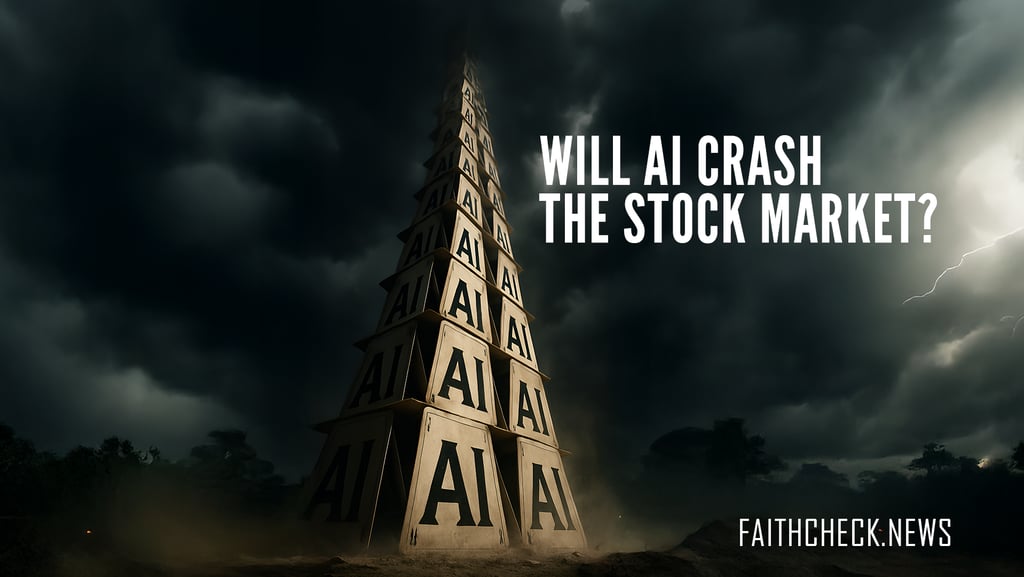Will AI Crash the Stock Market?
Veteran investor Leon Cooperman warns that stocks are entering Buffett’s “danger zone,” with AI-driven speculation threatening to turn normal corrections into market-shaking crashes.
NEWS
10/1/20251 min read


In a recent interview, veteran investor Leon Cooperman warned that we may be entering a danger zone in the current bull market—one that Warren Buffett has long cautioned about. While Cooperman didn’t single out AI as the sole trigger, his remarks carry implications for how advanced technologies like AI could amplify the risks in an already fragile market.
Market Tension & Caution
Cooperman argued that valuations are stretched and the margin for error is thin. He said we’ve reached:
“the stage of the bull market that Warren Buffett warned about”
He cautioned that the next leg could bring “pauses and 10-15% breakdowns” before any sustainable rally resumes.
(As seen in similarly cautious tones from him in prior interviews.) YouTube
He also emphasized that the S&P 500 is “going nowhere” in the near term, urging investors to look for undervalued individual stocks rather than betting on the whole market. Business Insider
The Role of AI: Catalyst or Coincidence?
While Cooperman didn’t explicitly say AI will cause a crash, his broader warning about speculative excess and market instability resonates with concerns around AI-driven trading systems, algorithmic momentum, and crowding into “hot” sectors.
Here’s how AI might intensify market stress:
Feedback loops & amplification. AI-driven strategies react instantaneously to price or volume moves, which can exacerbate volatility.
Herding in growth/tech names. AI’s spotlight on certain high-multiple sectors can pull capital en masse, inflating bubbles.
Model risk & overfitting. Overreliance on models trained in calmer environments can break down under stress.
Liquidity traps. In a sudden drawdown, AI strategies might all try to exit simultaneously—straining liquidity.
If you combine those forces with stretched valuation, high leverage, and central banks walking a tightrope, the risk of a sharper correction rises.

Faith Check News
Curating daily news stories for Christian readers.
CONNECT OTHERS
© 2025. All rights reserved.
